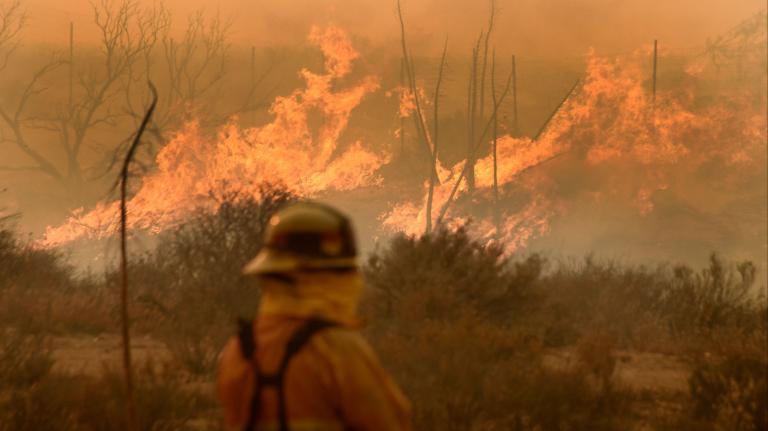If pipeline companies learned one thing from the fight that took down Keystone XL, it’s that sustained and vocal criticism can achieve real political outcomes, so they shouldn’t underestimate their opposition.
Maybe that’s why Dakota Access LLC, the company building one of the biggest pipelines proposed in the U.S. since Keystone XL, is attacking its critics directly.
On Monday, Dakota Access filed suit against the Standing Rock Sioux Tribe, asking for restraining orders and seeking unspecified monetary damages against a tribal chairman and other protesters who had been “occupying” land near pipeline construction sites.
The company has already begun construction on the 1,172-mile pipeline, intended to send up to 570,000 barrels of crude oil a day from North Dakota’s Bakken shale sites, through South Dakota and Iowa, to a refinery in Illinois.
Along the pipeline route, Dakota Access cuts across farmland, the Missouri, Mississippi, and Big Sioux rivers, and cultural and historical sites sacred to Native American tribes. In one location, the pipeline runs just 500 feet from the Standing Rock Sioux Tribe’s reservation border, according to organizer and property owner LaDonna Brave Bull Allard.
The tribe last week organized protesters to occupy land less than a mile from the tribe’s reservation boundary — land that Dakota Access had intended to cross in order to begin laying down pipe, said Nicole Donaghy, a native of Standing Rock and lobbyist for the Dakota Resource Council.
More than 500 protesters faced off with police and private, armed security guards; about 28 people have been arrested, reports the Bismarck Tribune. (Among their number was Hollywood actress Shailene Woodley, the star of the Divergent film series, reports the Associated Press.) Dakota Access did not respond to Grist’s request for comment.
The Army Corps of Engineers in July gave the pipeline its final federal permits, despite the tribe’s pending lawsuit against the Corps, filed in D.C. district court, which has an injunction hearing scheduled for Aug. 24. The suit argues that the project violates the Clean Water Act and the National Historic Preservation Act, among other laws. The tribe hopes the court will rule in its favor and issue a stop-work order.
Meanwhile, in Iowa, landowners have filed suit against eminent domain proceedings, which they argue would only be legal if the pipeline were a public utility instead of being privately owned.
Despite protests and pending lawsuits, Dakota Access will keep laying pipeline in the ground in all four states. Unless Dakota Access is derailed or delayed, the pipeline should be operational by the end of 2016.



